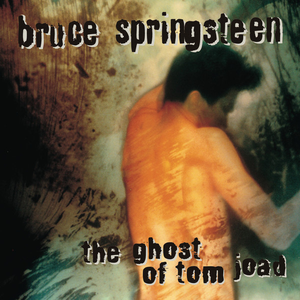Published on Mar 21, 2000
Even in a utopian society, Bruce Springsteen would probably
still be able to drop an album as dark as
Nebraska to the public. Look at the year 1995. It was that
year when people started to tire of angst-ridden music. Hootie and
the Blowfish was selling truckloads of albums just as ol’ fashioned
rock and roll was restoring its dominance on the music charts.
Springsteen could have ridden the top of the charts with an
album full of soaring anthems like his electric “Born To Run” or
“Born In The U.S.A.” But, the Boss chose to go acoustic. And while
everyone was craving something a bit more cherry than Nirvana or
Soundgarden, Springsteen gave us
The Ghost Of Tom Joad. Record-execs craving a massive hit
must have stocked up on heart medication after listening to this
brutal, folk masterpiece.
Even with the economy rising and employment dropping to
record-low figures, Springsteen knows that profits are usually made
by the suffering of others. And
The Ghost Of Tom Joad is full of suffering. Crippling
unemployment, ex-convicts tempted to go back to their old ways to
put food on the table and pay for rent are some of the subjects
Springsteen deals with on
The Ghost Of Tom Joad. Nearly three years before the meth
epidemic made its way into the national spotlight, he sings about
meth labs blowing up in “Sinaloa Cowboys”.
Comparisons to
Nebraska, Springsteen’s other dark, acoustic masterpiece
were inevitable. But
The Ghost Of Tom Joad deserves to be looked at on its own
merits. The title track is heavily influenced by Bob Dylan and
Springsteen’s weather-beaten voice makes the Dylan comparisons even
more evident.
“Youngstown,” one of the highlights on the album, is a damning
vindication of a town born on industry, only to have that industry
shut down and move on. Springsteen doesn’t dull the pain as he
droans, “Now the yard’s just scrap and rubble/ He said ‘Them big
boys did what Hitler couldn’t do.” Pedal steel guitars and violins
only add to the song’s sorrow.
Still, you can count on Springsteen for his wicked and vastly
underrated sense of humor. And the Boss-man lays the sarcasm on
heavy on the final track, “My Best Was Never Good Enough.” Over an
acoustic guitar rhythm, he spouts off most all of the “wisdom”
aquired in the movie
Forrest Gump.
Springsteen may never shake the dunderheads who thought “Born In
The U.S.A.” was a flag-waving ode to Ronald Reagan. But damned if
he doesn’t try by releasing material like
The Ghost Of Tom Joad every now and then. The album caught
the attention of Rage Against the Machine enough for them to do a
blistering cover of “The Ghost Of Tom Joad”.
As for his acoustic work,
Nebraska may very well be his crowning achievement. But
The Ghost Of Tom Joad comes close to besting that barren
work of art as well. And fortunately, Springsteen’s timing in
releasing these types of albums is impecible. He reminds us that no
matter how low inflation, interest rates are or how high the stock
market is, someone will always lose their job, someone will always
get out of prison and honest people will always be tempted to walk
that dangerous, fine line for the sake of putting a roof over their
heads.
